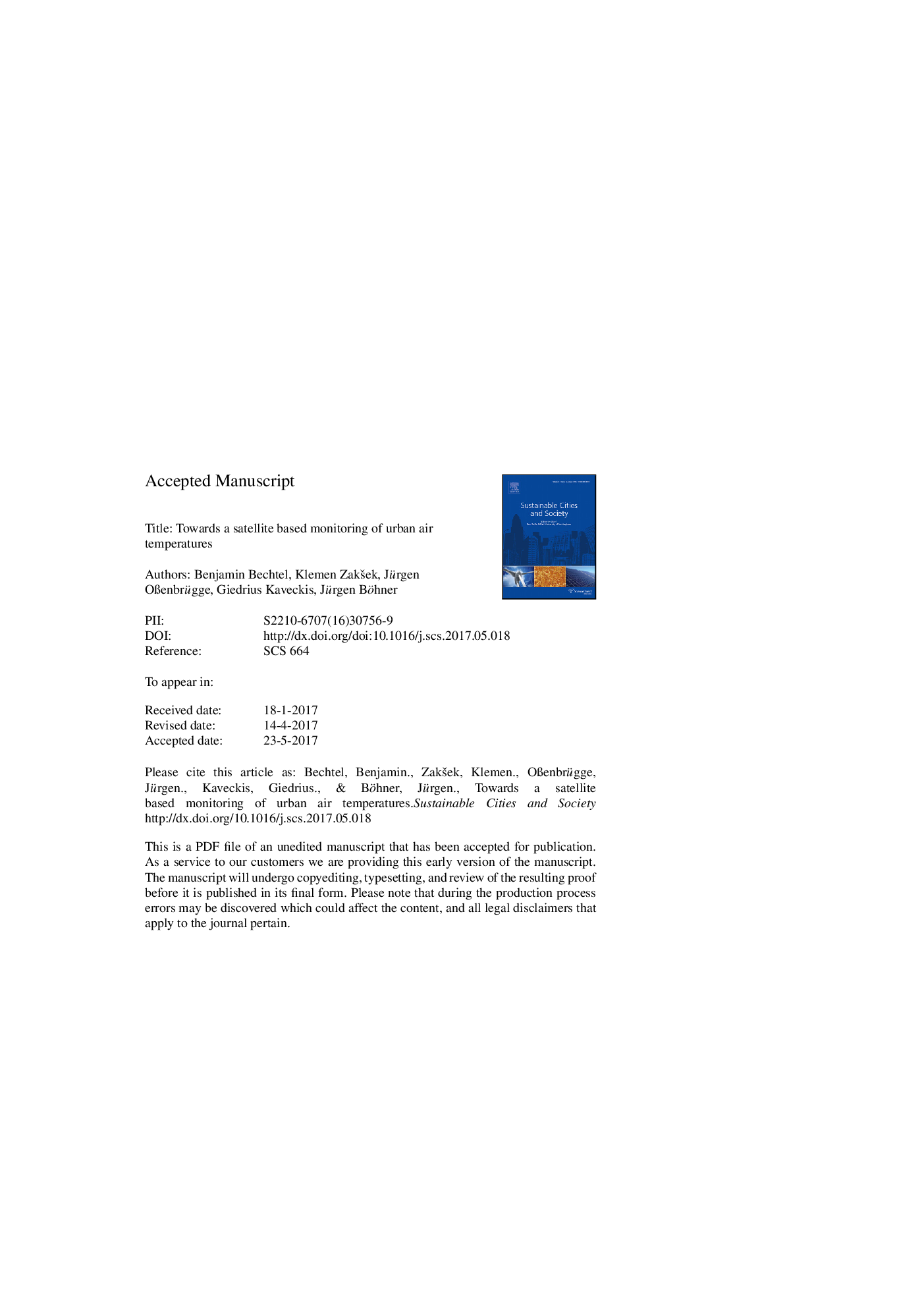| Article ID | Journal | Published Year | Pages | File Type |
|---|---|---|---|---|
| 4928169 | Sustainable Cities and Society | 2017 | 28 Pages |
Abstract
Timely meteorological data of high accuracy and spatiotemporal resolution can contribute to sustainable urban planning and management in terms of human thermal comfort, heat wave warning, air pollution prediction, as well as building and transport management among others. Today, the scientific knowledge about the specific urban climate is not fully exploited by these applications. Of particular relevance is thereby the thermal impact which currently is either observed in situ or modelled. Both approaches have advantages but also shortcomings in terms of costs and data needs. In this study we investigated air temperatures estimations from satellite data as alternative source. In particular, we focused on dense time series of land surface temperature as predictors for urban and rural air temperature. We applied empirical models which used LST in predefined time intervals to estimate air temperature using a simple but robust method for empirical modelling. The root mean square errors of the model substantially decreased with the multi-temporal predictors and were below 2Â K for most stations. Additionally, the representation of the diurnal cycle improved and the annual cycle was well represented. This method is seen as a great enhancement of existing satellite based air temperature monitoring methods especially for urban applications.
Keywords
Related Topics
Physical Sciences and Engineering
Energy
Renewable Energy, Sustainability and the Environment
Authors
Benjamin Bechtel, Klemen ZakÅ¡ek, Jürgen OÃenbrügge, Giedrius Kaveckis, Jürgen Böhner,
